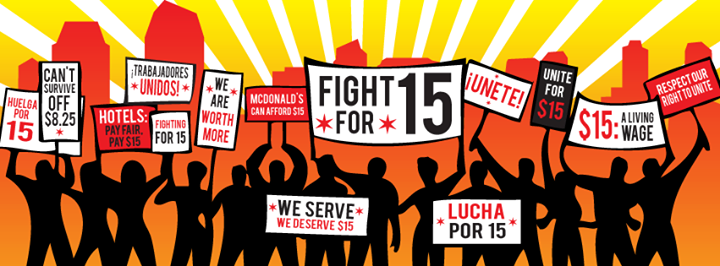“If you really want to secure a better future for yourself, the best way is to invest in your personal human capital by learning more skills and gaining workplace experience, rather than advocating for the revival of a declining and ineffective method of workplace organization.” — Zachary Yost, UFCW member

Zachary Yost is a current member of the United Food and Commercial Workers—a union the represents, primarily, grocery workers.
As such, and in response to a pro-union New York Times op-ed, Yost wrote a column in the Washington Examiner that details some of the specific problems with unions, as well as the SEIU’s attempt to unionize the fast-food industry through its Fight for $15 movement, that millennials should be wary about.
There are trade-offs and costs to every action, and unions are no different, especially when it comes to money. Unions cost money to run, and unless you live in a right-to-work state, there is no way you can opt-out of paying dues if you have a unionized workplace.
Every week, about an hour’s worth of pay is taken out of my paycheck to cover my mandatory union dues. If you only work 20 hours, since most service industry jobs are part time, dues can be a whole 5 percent of your paycheck, on top of taxes.
If your union workplace operates on fixed pay schedules based on how long you have been employed, like mine does, that means that no matter how hard you work, you will always make less money than people who have been there longer, even if you are more productive and do a better job. This becomes even more frustrating when you end up being saddled with more work to make up for the bad employees who can’t be fired. (When the grocery store chain I work at tried to give some merit-based raises to hard-working employees, the UFCW sued to stop it.)
Another core problem with labor unions is their economic ignorance.
Many unions are on board with the “fight for 15” campaign to raise the minimum wage to $15 an hour. Basic economics says that setting a price floor on labor will price everyone unable to create $15 in value out of the market, leaving many low-skilled people, especially young workers, unable to find jobs.
Read the rest of Yost’s column here.





